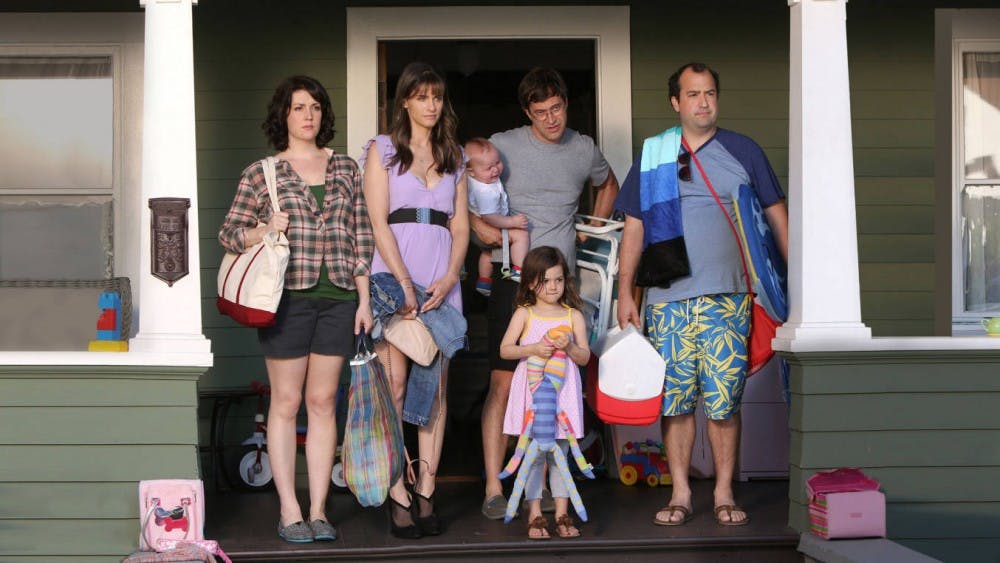Sundays are a big night for HBO. “Girls” returned for its fourth season, showcasing an occasionally exhausting, yet entertaining look into the lives of post-graduates struggling in New York City. “Looking” entered its sophomore year, examining the slightly older and accomplished lives and culture of gay friends in San Francisco. Both shows follow the same formula of a naturalistic tone and small stake drama, and both are entertaining.
Then came “Togetherness.” Like the series before it, “Togetherness” takes a “show about nothing” plot and realistic human approach, putting both elements in a family setting.
“Togetherness” comes from this generation’s Coen brothers, Mark and Jay Duplass, known for producing critically-acclaimed indie films including “Safety Not Guaranteed” and “The Skeleton Twins.” The two brothers, who write and direct a majority of the episodes, set out to make a show based on their personal experiences of family dynamics and working in Hollywood.
The show centers on a group of four adults. Husband Brett (Mark Duplass) is a sound designer, struggling to find intrigue in his job and taking his marriage for granted. Duplass isn’t afraid to paint his character in an unlikable light, as Brett often comes off as antagonistic. Tina (Amanda Peet), Brett’s sister-in-law, has recently moved to California and is living on the family room couch.
Though Peet and Duplass are great talents, Steve Zissis and Melanie Lynskey steal the show. Zissis plays Alex, Brett’s longtime friend trying to break into acting. The show begins with Alex getting evicted from his apartment and moving in with Brett and his wife Michelle (Lynskey). Lynskey is a major force as the quiet and slowly suffocating wife who wants something different from her daily routine.
HBO comedies are known for their cringeworthy realistic moments, which “Togetherness” stays true to. Episode two features Brett and Michelle’s failed attempt at spicing up their sex life and a workplace feud. Unlike “Girls” and “Looking,” “Togetherness” is able to find brevity and moments of pure joy between the characters even through the murky and uncomfortable situations.
The concept is simple yet effective — four adults living in the same house, all with complicated, messy lives. The Duplass brothers do not go in for the punch lines, and plot points do not always tie up neatly. The show instead creates a sometimes unsettling view on relationships — still, “Togetherness” is a charming show.
While director-driven, low-budget, art-house comedies are approaching the point of saturation, “Togetherness” manages to create something unique. The Sunday half-hour comedy block has become somewhat of a three-course meal: “Girls,” the debatably unnecessary hit-or-miss appetizer, “Looking,” the hefty entrée and “Togetherness,” the pleasant dessert.







